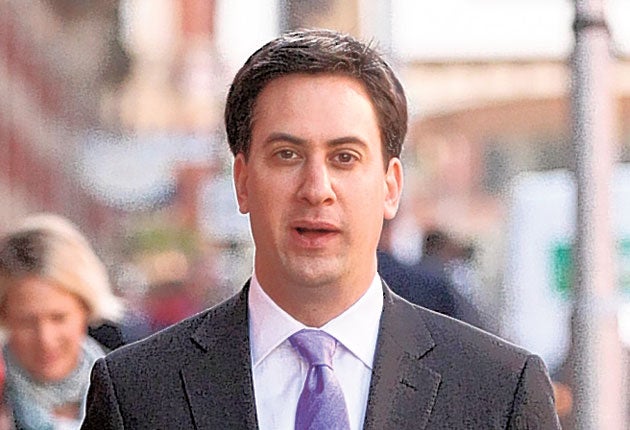Miliband ally tells the rich: you should pay higher taxes

One of Ed Miliband's closest allies has backed a tax increase for higher earners as Labour prepares to reveal new details about his plan to deal with Britain's budget deficit.
Peter Hain, who was part of Mr Miliband's leadership campaign team, said an increase in tax on the wealthy would "square the circle", allowing Labour to avoid the Coalition Government's controversial cut to child benefit. His intervention comes as the new shadow Chancellor, Alan Johnson, prepares to make his first major speech in the role on Monday. Mr Johnson has also agreed to television interviews over the weekend.
Tax plans were discussed at a meeting of the Shadow Cabinet on Thursday, with Mr Miliband known to favour an equal split between higher taxes and spending cuts to ease the £155bn deficit. Alistair Darling, the previous chancellor, had wanted 66 per cent of his party's deficit reduction plan to be made up of spending cuts, with 34 per cent coming from tax increases.
Mr Hain said placing a greater burden of tax on high earners would allow Labour to protect those on middle incomes from losing universal benefits.
The Coalition has already announced its intention to withdraw child benefit from those earning around £44,000 or more. "Universality is non-negotiable," Mr Hain said. "If you start driving a coach and horses through universality you're effectively saying to middle Britain, 'you've got no stake in the welfare state.' I think the Tories and Liberals are making a very big mistake on child benefit. There's an answer to people on higher incomes and that's they pay higher taxes. And that is the answer to squaring that circle."
One option for Mr Miliband would be lowering the 50p tax band, which currently applies to anyone earning more than £150,000 a year. However, others close to the Labour leader favour raising revenue through a hefty increase in the levy on banks.
Since his election, Mr Miliband has said he plans to do "more from taxation" than Mr Darling had intended. During the leadership campaign, he also said Mr Darling had drawn up the "wrong ratio" of tax rises and spending cuts. "I think we should look to see where we could get more tax revenue from," he said.
Mr Hain revealed that Mr Miliband would take a high degree of personal control over his party's economic policy. This would be a marked change from the Blair era, when Gordon Brown's iron grip over the remit during his time as Chancellor allowed him to create his own power base from No 11.
It also sheds further light on Mr Miliband's decision not to hand the job of shadow Chancellor to Ed Balls, one of his rivals in the party's leadership contest, who has repeatedly pushed Labour to abandon its former policy of halving the deficit over four years.
"Alan will be a very able shadow Chancellor, and he's shown in all the jobs he's done that he can pick up a brief and sprint with it," Mr Hain told the website Labour Uncut. "What people forget is Ed is an economist. He's not a party leader who's going to chair a range of views and attract a synthesis.
"He's got a very clear idea of where he wants to go on the economy and the deficit and we'll set that out. We'll both be offering a serious alternative."
Mr Johnson will also be confronted about the disagreement between him and Mr Miliband over the introduction of a graduate tax. In an open letter to the newly elected leader before he was made shadow Chancellor, Mr Johnson urged him to drop the policy.
Join our commenting forum
Join thought-provoking conversations, follow other Independent readers and see their replies
Comments
Bookmark popover
Removed from bookmarks